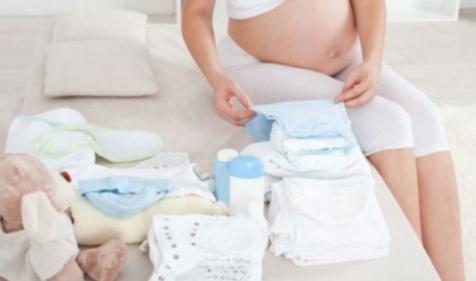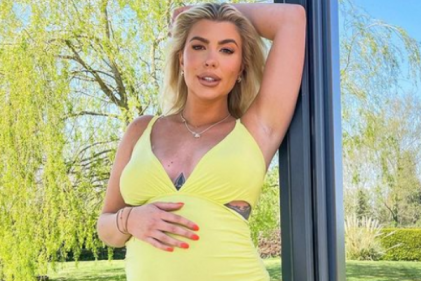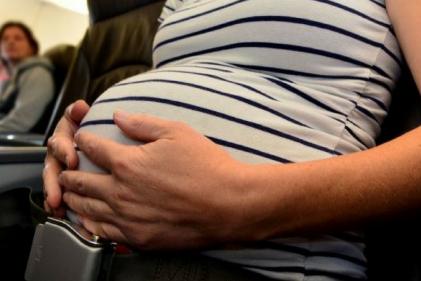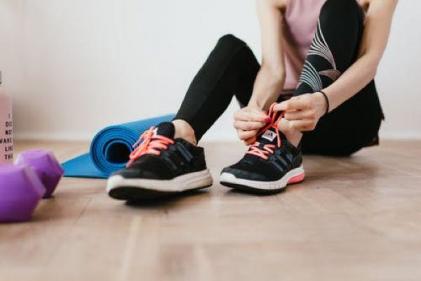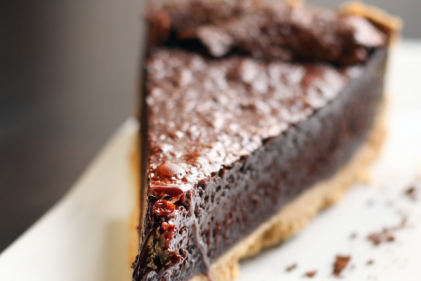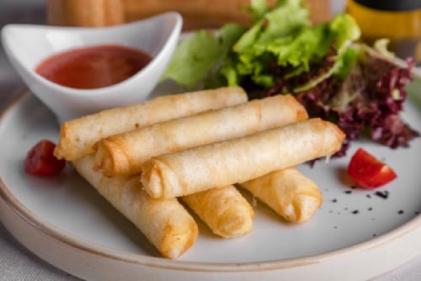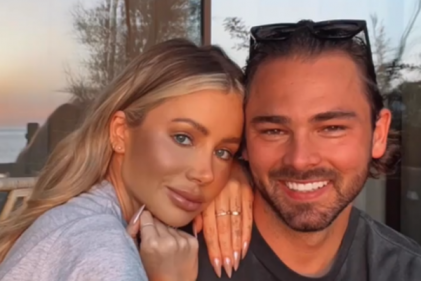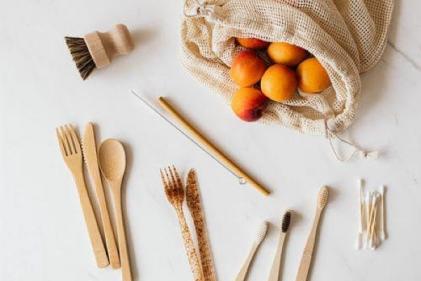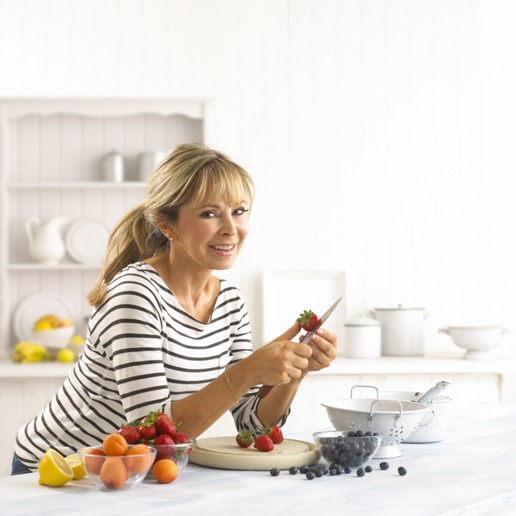 Here at MummyPages, we were very lucky to get our hands on a copy of Annabel Karmel’s gorgeous new book “Eating for two: The complete guide to nutrition during pregnancy and beyond.” It’s an essential read for every expectant mum, featuring lots of wonderful advice about what to eat and what to avoid during pregnancy, how to beat those unwanted side effects of pregnancy such as morning sickness and also boasts over ninety fabulously, delicious recipes that you just won’t be able to resist! Annabel is the UK’s best loved author on babies’ and children’s food and we were thrilled when she very kindly agreed to answer some of our questions especially for our mums!
Here at MummyPages, we were very lucky to get our hands on a copy of Annabel Karmel’s gorgeous new book “Eating for two: The complete guide to nutrition during pregnancy and beyond.” It’s an essential read for every expectant mum, featuring lots of wonderful advice about what to eat and what to avoid during pregnancy, how to beat those unwanted side effects of pregnancy such as morning sickness and also boasts over ninety fabulously, delicious recipes that you just won’t be able to resist! Annabel is the UK’s best loved author on babies’ and children’s food and we were thrilled when she very kindly agreed to answer some of our questions especially for our mums!
1. What made you decide to write a book especially for pregnant women?
I think there is a lot of confusion over what you can and can’t eat when you are pregnant. Also a lot of women end up putting on too much weight and then it can cause problems for the birth and is difficult to shift after the baby is born. By developing delicious recipes that are easy to prepare using nutrients that are especially important during pregnancy I thought I could help mums- to- be enjoy their pregnancy and know that they are giving their baby the best start in life.
2. You have extensively researched weight gain in pregnancy and have written about the need for clearer guidelines to be outlined relating to weight gain during pregnancy in the UK. Why do you think this issue is so important?
Having spoken to hundreds of pregnant women and some of the world’s top experts, I realise that women are confused about what to eat, and how much to eat. Some women think being pregnant gives them the green light to eat what they like, when they like. We need to educate pregnant women right from the start of their pregnancies – before the damage is done.
One thing that has always impressed me is that mothers will do anything to feed their babies and toddlers well. My entire career is built on the fact that mums want the very best for their kids. But that very best should begin while their precious babies are still in their tummies. The love and the care shouldn’t start the second your baby is born – it should begin when the brains, bones and organs are forming. I firmly believe that most mothers would do anything to help their babies. Yet by eating too much, they run the risk of pre-eclampsia and other complications during labour. Surely the Government needs to end the confusion and issue much clearer guidelines to help women protect their unborn babies. If we can save just one baby or mother from health problems, it will be a job well done.
3. What were your own favourite foods to eat while you were pregnant?
I love fish and some of my favourite recipes are in the book like the Roast Cod with Red Pepper and Tomato Sauce, the Sticky tuna with Ribbon Noodles the Salmon Fillet with Tomato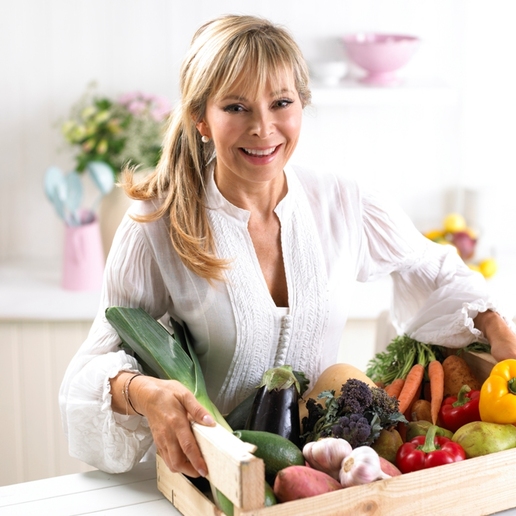 Salsa, my Salmon Fish Cakes and the Penne with Tuna, Tomato and Red Onion. I also had a craving for chocolate!
Salsa, my Salmon Fish Cakes and the Penne with Tuna, Tomato and Red Onion. I also had a craving for chocolate!
 Salsa, my Salmon Fish Cakes and the Penne with Tuna, Tomato and Red Onion. I also had a craving for chocolate!
Salsa, my Salmon Fish Cakes and the Penne with Tuna, Tomato and Red Onion. I also had a craving for chocolate!
4. A lot of pregnant women suffer from morning sickness and you have included lots of wonderful tips in the book on how to beat it. Are there any foods that women should include or remove from their diets which might help ease the symptoms of morning sickness?
Start the day with a light snack before you actually get out of bed. You could keep a box of crackers by the bed, or maybe your partner will be thoughtful enough to bring you tea and dry toast.
Eat a small, high-carbohydrate snack every hour or so.
Minimise cooking smells by opening windows and using extractor fans when cooking (easier said than done if it is winter). Eat in a separate room from where food is prepared. Choose cool or cold foods as these have less of an odour.
Some people find that foods or drinks containing ginger help to relieve nausea. You could try ginger beer (non-alcoholic, of course), ginger ale, ginger biscuits or a stir fry flavoured with ginger.
Avoid eating greasy foods because they’ll sit in your stomach for longer. Some women also feel better if they avoid eating spicy foods.
Make meals that are quick to prepare – or try to get someone else to do it.
Suck on a slice of lemon or a sour sweet.
Have a sip of a fizzy drink every few minutes when feeling nauseous.
Eat smaller meals but include more snacks to compensate. Eat more at the times of day when you feel better.
Don’t drink much with meals (but compensate by sipping drinks regularly between meals). This will help prevent you feeling as full at meals and help with nausea.
5. Where do you get the inspiration for your recipes?
I’m just obsessed with food. I love creating recipes and I get inspiration from experimenting with different ingredients, eating out, travelling and reading lots of different recipes and then adapting them to my style of cooking.
6.There has been a lot of research done lately which ‘debunks’ the common belief that pregnant women should be eating for two and instead recommends a calorie controlled diet? Where would you stand in relation to this argument?
Pregnancy is often seen as a time to forget diets, throw away the scales, and eat whatever you like. The combination of food cravings and knowing that weight gain is inevitable and even necessary can fuel temptation to eat fatty and sugary foods, with the excuse that you are ‘eating for two’. In reality, while there are now two of you, your body is more efficient during pregnancy, and you don’t need to eat extra calories for the first two trimesters. Even during the third trimester, only an extra 200 calories are needed each day, on average, and less if you were overweight at the beginning of pregnancy.
It can be tempting to throw caution to the wind, but this can mean gaining more weight than recommended. Excess weight gain can increase the risk of problems such as pre-eclampsia and diabetes during pregnancy, not to mention carrying extra weight after the birth that can be very difficult to lose. It can also be as a result of choosing foods that are higher in fat and sugar, but possibly lower in the vitamins and minerals crucial to your baby’s development. On the bright side, eating a nutritious diet that does supply all your baby’s essential nutrients is unlikely to lead to excess weight, and is the best start in life for your baby.
7. Do you think there is enough awareness about women should or shouldn’t be eating during pregnancy?
I think there is a lack of solid information that has been thoroughly researched. There is plenty of information, almost too much, but it can often be conflicting, and not at all helpful to mothers who I am sure find it all very overwhelming. Not eating enough of the right things, or eating too much of the ‘wrong’ things can lead to health problems during birth like pre eclampsia and can make it much harder to lose the baby weight afterwards. Having a set of guidelines with more specific advice on weight gain and what foods you should be avoiding, can at least give you something to follow, even if not religiously.
8. If you had one piece of advice for pregnant mums who are novice cooks then what would it be?
Get in the kitchen while you have some energy earlier on in your pregnancy and practice a few dishes that are simple or that you can freeze for meals after you have given birth. Get a friend round to help you and don’t be disheartened if it doesn’t turn out like the picture, just getting started is a great step to getting more confident in the kitchen.
9. What advice would you have for women on a special diet, e.g. coeliacs, vegetarians?
Iron is very important when you are pregnant and one of the commonest nutritional deficiencies when you are pregnant is iron deficiency. The type of iron found in meat, fish and poultry is more easily absorbed than that found in plant foods. However you can boost the absorption of iron from plant foods eg: wholegrain cereals, green leafy vegetables , lentils etc. by eating foods rich in vitamin C at the same meal. Its also important to avoid drinking tea or coffee with meals as they may block iron absorption.
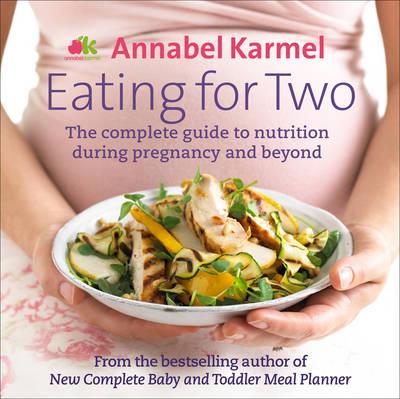 10. What’s the best advice you could give a soon to be mum about their diet?
10. What’s the best advice you could give a soon to be mum about their diet?
Don’t feel you are not allowed to treat yourself when pregnant and only eat salads and nuts! you should definitely not deny yourself chocolate or cake when that is what you are really craving. However try to discipline yourself to make it a treat and not a normal part of every meal. It will make things so much easier if you want to lose weight after you have given birth.
11. Are there any super-foods that every mum should eat while pregnant?
All nutrients are important when you are pregnant but there are certain key nutrients to keep in mind. It is recommended to take a 400mcg folic acid supplement before conception and during the first trimester. Its also good to eat foods rich in folic acid like green leafy vegetables and citrus fruits in the first three months. Iron is very important all the way through pregnancy but particularly in the last 3 months when your baby is laying down his iron stores. Red meat is one of the best sources of iron. Omega 3 fats found in oily fish are a major component of brain, eye and nerve tissue and therefore critical to the development of your growing baby . It is recommended that you eat oily fish twice a week but not more often.
Calcium is the building block of your developing baby’s bones and teeth, the best source of calcium is in dairy food – try to eat 2 to3 servings a day.
Vitamin C is important for your baby’s development and also aids iron absorption. The recommended intake of vitamin C increases during pregnancy. It is recommended that you try to include a source at each meal.
12. There are so many gorgeous recipes in the book, what’s your favourite?
It’s very difficult for me to choose my favourite but I do love Thai food so love making the Thai Chicken with Butternut Squash, and for real comfort food while we are having this awful weather I love the Chicken and Potato Pie. To cap it all off and satisfy my very sweet tooth, I would have to say the Raspberry and Blackberry Crumble or the Lemon Soufflé Pudding!
Read our review for 'Eating for two, a complete guide to nutrition during pregnancy and beyond'.

